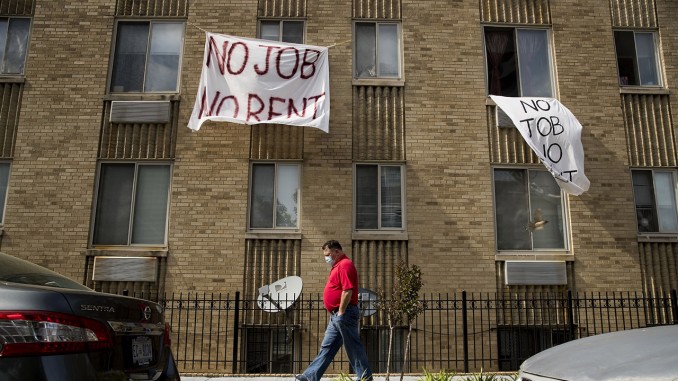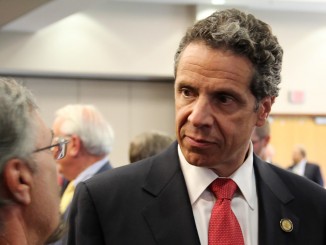
With no guarantee of a second stimulus check, no extension of federal unemployment benefits, and eviction moratoriums ending, millions are left vulnerable to eviction during a time when shelter is an even more important necessity. According to the Aspen Institute, up to 23 million renters are at risk of losing their homes, creating a potential avalanche of evictions hitting low income workers the hardest.
Since the beginning of the pandemic, more than 44 million Americans have filed for unemployment. But with the $600 weekly federal unemployment benefits ending at the end of July, some people are now making as little as $5 per week, Hawaii’s minimum weekly benefit. Most states have weekly minimums below $100, with the U.S. average a measly $61.
The Senate is proposing a new aid package, the HEALS Act, with weekly federal unemployment benefits of $200, along with a second round of $1,200 direct payments. This was announced on July 27, yet as of August 4, a deal has still not been reached. The Senate goes on recess from August 8 to September 8, so either a resolution will be reached by Friday, or not until September, potentially leaving many vulnerable to eviction now.
This aid package, if it passes, is still too little and too late. Even if the most aggressive proposals of the bill are agreed upon, millions of poor and working people will still be at risk of getting kicked out on the street. Since May, around 30 state eviction moratoriums have ended. The federal eviction moratorium also expired at the end of July, and without an extension, more than 12 million renters could be defenseless against eviction.
With less income, fewer legal protections, and no end in sight to the pandemic, the number of evictions is only going to rise. It’s becoming clearer that poor and working people are not a priority of this system, and that the profits of landlords and banks are still more important than human need. Eviction is horrible during “normal” times. The fact that evictions are only expected to increase in the time of a global health crisis is criminal. We have to prepare ourselves to organize to oppose evictions, and protect our lives!




